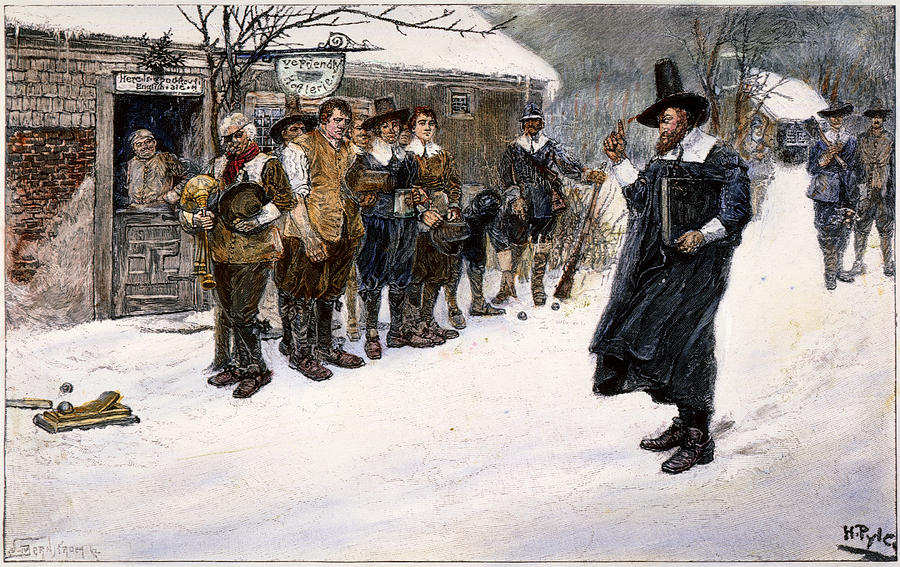History
How the Puritans Banned Christmas
The Puritans banned Christmas in Massachusetts in 1659. But why? Learn more about this Scrooge-like moment in New England history.

“The Puritan Governor interrupting the Christmas Sports,” by Howard Pyle c. 1883
Photo Credit : Public DomainA short, easily-overlooked paragraph from an early law book of the Massachusetts Bay Colony reads as follows:
“For preventing disorders arising in several places within this jurisdiction, by reason of some still observing such festivals as were superstitiously kept in other countries, to the great dishonor of God and offence of others, it is therefore ordered by this Court and the authority thereof, that whosoever shall be found observing any such day as Christmas or the like, either by forbearing of labor, feasting, or any other way, upon such accountants as aforesaid, every person so offending shall pay of every such offence five shillings, as a fine to the county.”Yes, you read that right. In 1659 the Puritan government of the Massachusetts Bay Colony actually banned Christmas. So how did one of the largest Christian holidays come to be persecuted in the earliest days of New England? Christmas in 17th century England actually wasn’t so different from the holiday we celebrate today. It was one of the largest religious observances, full of traditions, feast days, revelry and cultural significance. But the Puritans, a pious religious minority (who, after all, fled the persecution of the Anglican majority), felt that such celebrations were unnecessary and, more importantly, distracted from religious discipline. They also felt that due to the holiday’s loose pagan origins, celebrating it would constitute idolatry. A common sentiment among the leaders of the time was that such feast days detracted from their core beliefs: “They for whom all days are holy can have no holiday.” This meant that Christmas wasn’t the only holiday on the chopping block. Easter and Whitsunday, other important historical celebrations, were also forbidden. Bans like these would continue through the 18th and 19th centuries (the US House of Representatives even convened on Christmas in 1802). As Puritanism started to fall out of favor, however, Christmas was almost universally accepted throughout the US by 1840, and was eventually declared a National Holiday in 1870. This post was first published in 2015 and has been updated.
SEE MORE: Blue Laws? Blame the PuritansWhy George Washington Had Two Birthdays Why We Celebrate Thanksgiving on the Fourth Thursday in November
Heather Tourgee
Heather Tourgee has served as an editorial intern for Yankee Magazine and the Old Farmer's Almanac. She is a junior Environmental Nonfiction major at Middlebury College with a minor in German. When she isn't working in Dublin, you can find her on the rugby pitch, traveling, or enjoying the outdoors.
More by Heather Tourgee

